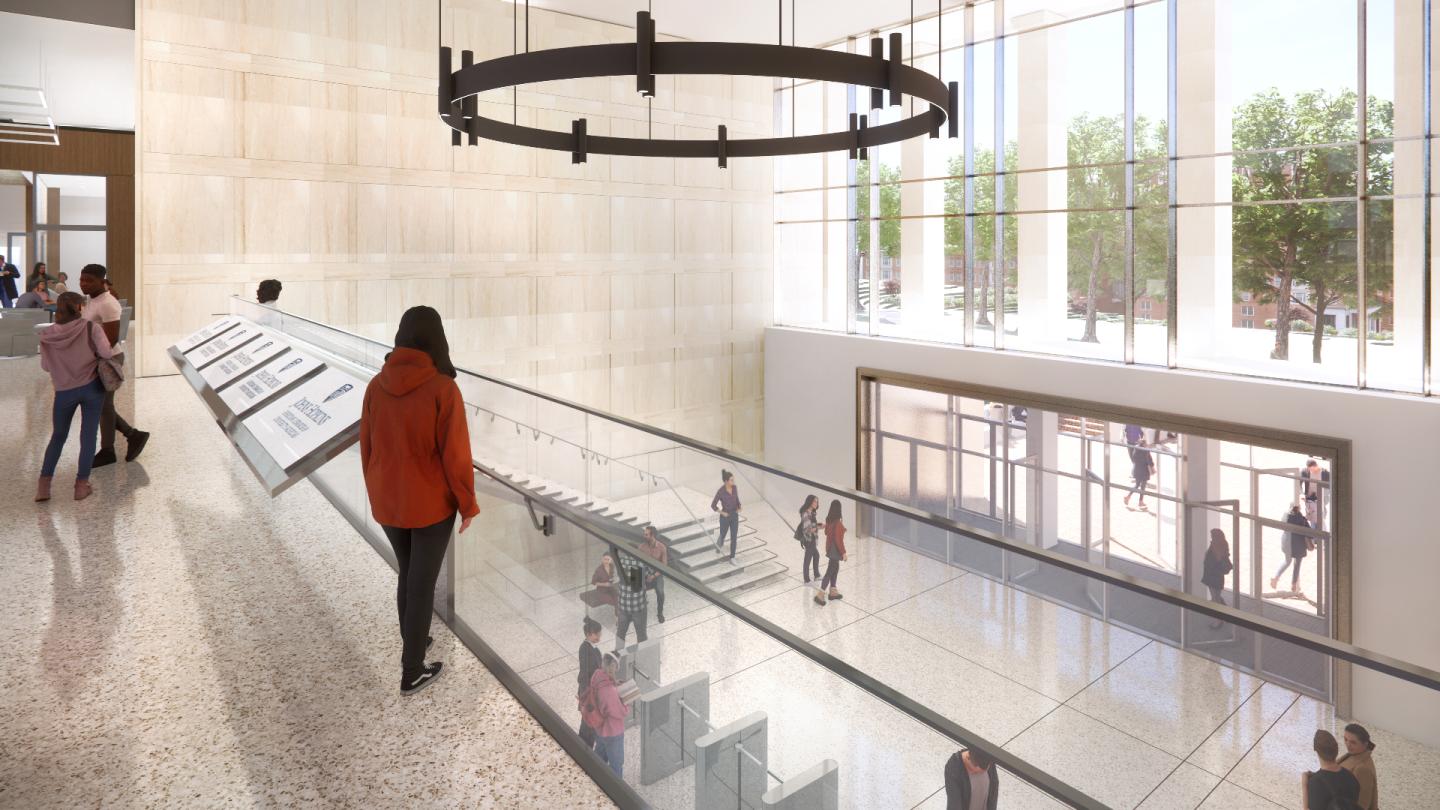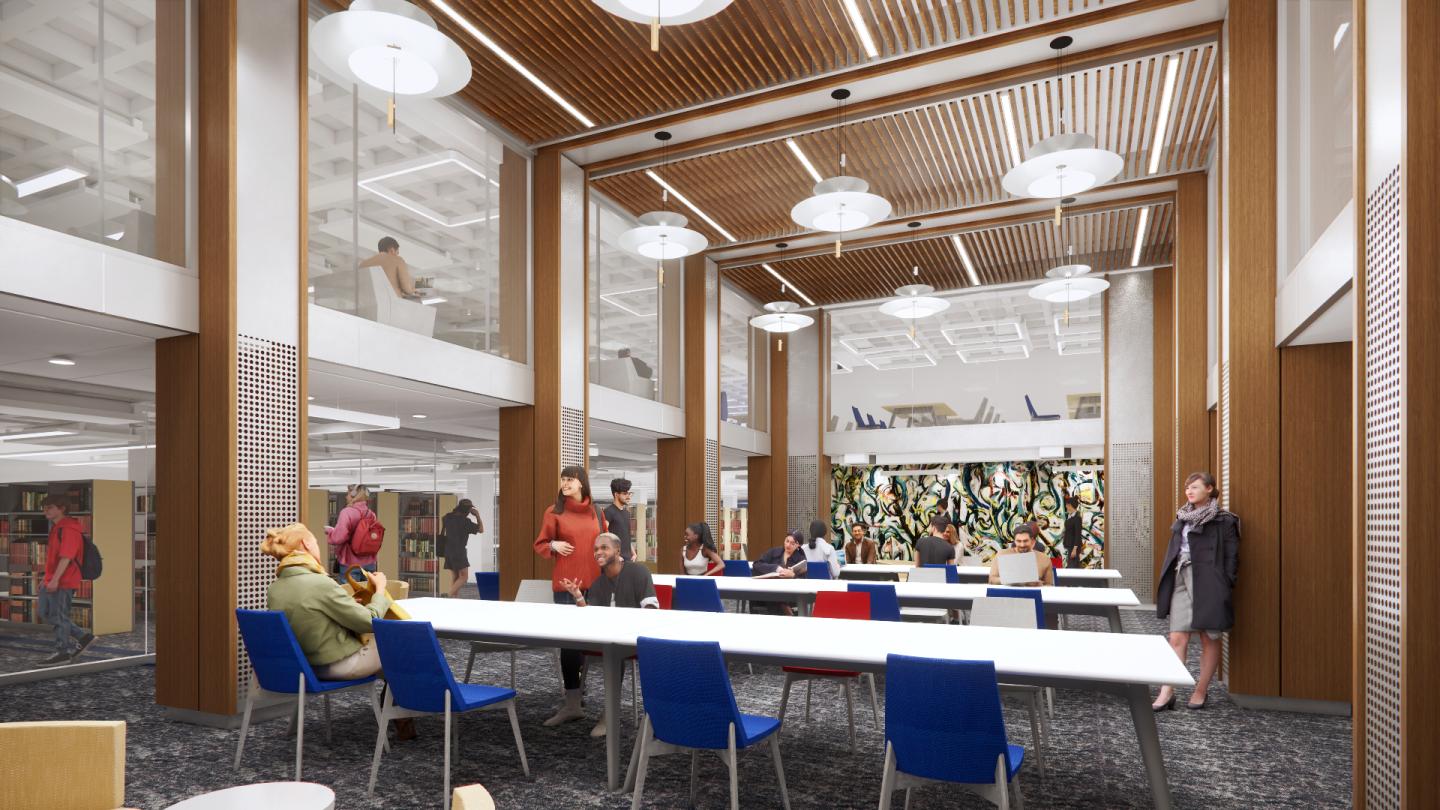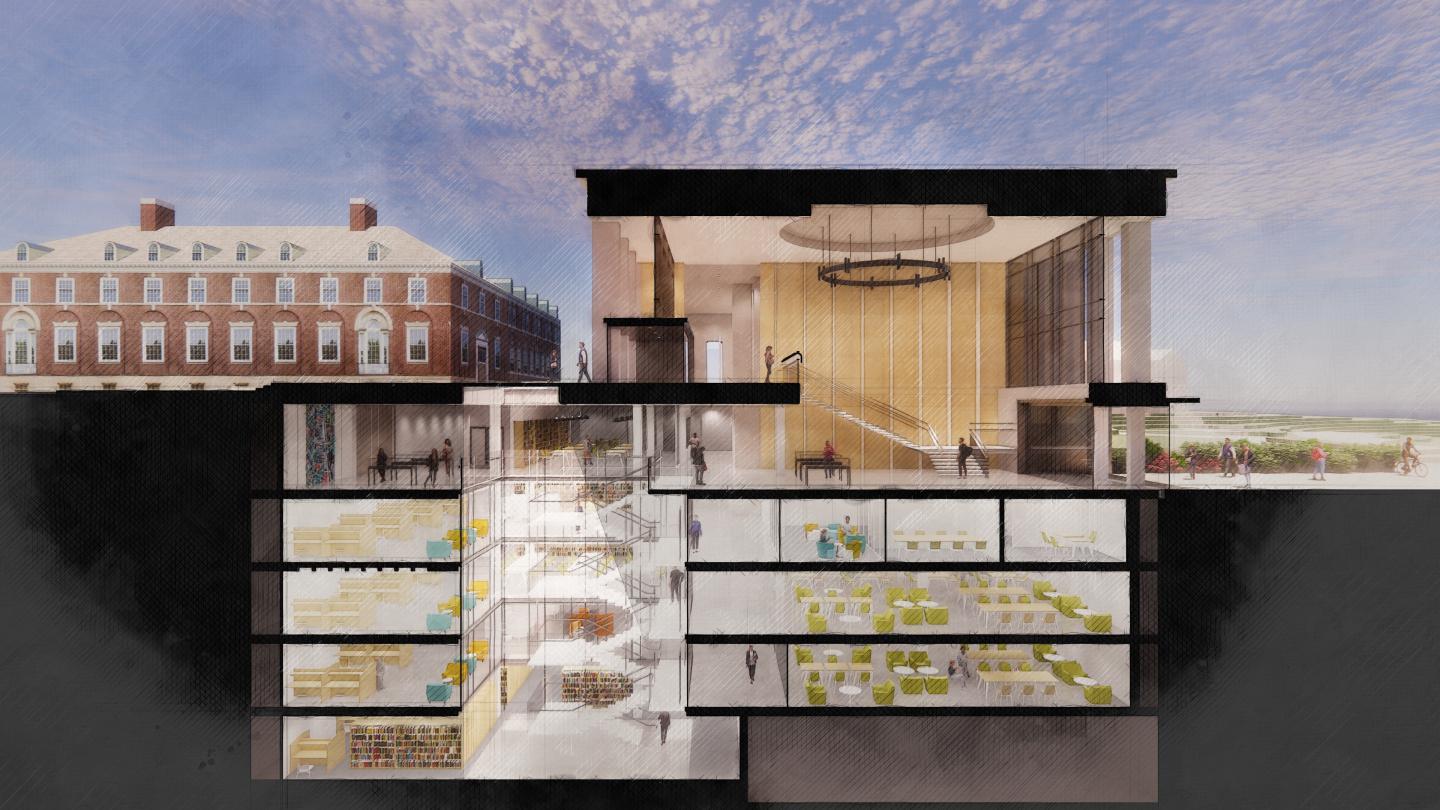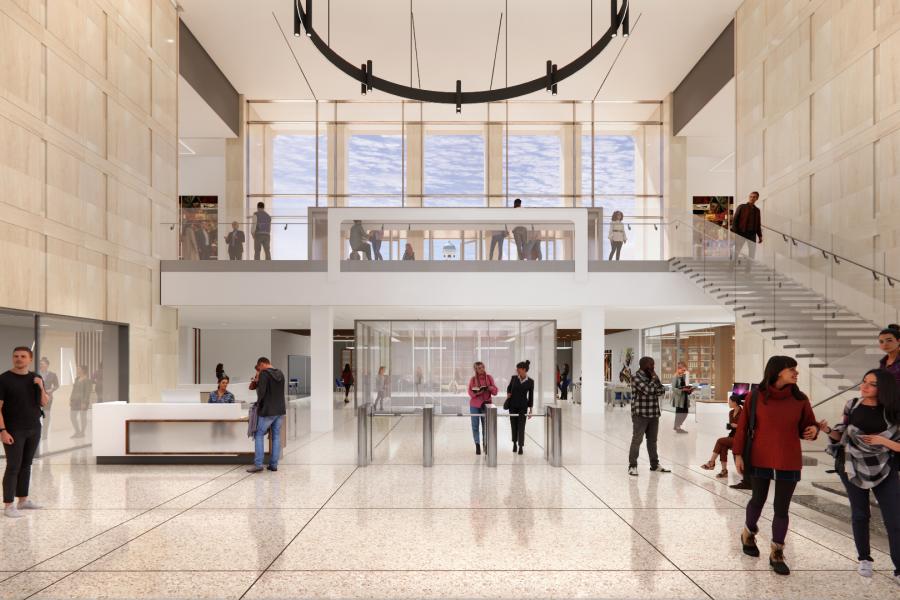The Milton S. Eisenhower Library, a popular but dated destination for research and study on Johns Hopkins University's Homewood campus, is scheduled to begin its first large-scale modernization project on July 10. These renovations will include updates to the building's health, safety, and mechanical systems, infrastructure, and interior architecture as well as improvements to accessibility and sustainability.
Opened in 1964, the MSE Library was originally designed for a different era of research. The past 60 years have seen the advent of the internet, the introduction of digital archives, and the doubling of JHU's student population. Yet despite these changes, the library building has never undergone any major renovations until this year.
"The renovation started because of a need to upgrade MSE's mechanical systems, but we're taking advantage of this opportunity," explained Elisabeth Long, the dean of Sheridan Libraries and University Museums. "How we study, how we research, and how we do our work as a university is radically different from what it was in 1964. We're looking to transform MSE into a modern library that meets modern needs."

Image credit: Pfeiffer Partners
The updated designs for the 182,000-square-foot building emphasize natural light, open sightlines, and universal design. New spaces, including a Digital Scholarship Lab and a Material Collections Research and Teaching Center, will be opened to enhance both digital and print-based scholarship. Exhibition areas, an event room, and designated graduate student spaces will also be added.
Existing study areas will be enhanced as well. A multifloor skylight reaching down to D-Level will allow natural light to reach new areas of the building. Both quiet and collaborative spaces will be upgraded and expanded, letting students choose the style of studying that best fits their needs. The renovations will also include improvements such as more outlets and upgraded Wi-Fi. Special Collections will be moved to a new, more prominent location on M-Level.
"A critical piece of our work is teaching students how to engage with primary source material," said Associate Director for Academic Liaison and Special Collections Margaret Burri. "We're excited to have more room for researchers and consultations, an exhibit area, and a dedicated teaching space. By relocating and expanding Special Collections, we hope to make the Hopkins and broader communities feel welcome to use our rare and unique materials."
The exterior of the building will remain largely unchanged, with the exception of the eastern doors. This entrance, which faces the Beach, will be dropped several feet to remove unnecessary stairs and improve accessibility.
The MSE renovations come after a decade of planning. Designs for the project were largely based on suggestions and feedback from students, staff, and faculty, and a cross-divisional committee of Hopkins affiliates. More input will be solicited over the next few years, including what furniture should be used in the renovated building.
"Student needs have been a core driver of the library renovation project and our plans for an interim space solution," said Vice Provost for Student Affairs Rachelle Hernandez. "Throughout the design phases of this project, our students have provided valuable input and identified priorities for desired library study spaces and support resources. Their feedback can be seen in every aspect of the renovation design."

Image credit: Pfeiffer Partners
The library will remain fully open and operational for the rest of the spring semester, with a student-curated exhibition and other activities planned to mark MSE's 60th anniversary. Once renovations begin in July, all the building's staff, services, resources, and study spaces will be moved to other locations until the project is complete.
"Our mantra has been, 'The library is not closing, a building is,'" Long said. "Everything that we are providing now in terms of book delivery and pickup, course reserves, research consultations with academic liaisons—they will still all be available. They will just be in a different place."
In an email to students March 28, Long and Hernandez shared an interim plan to use the former Hopkins Club building as MSE's main substitute space during renovations. Located on Bowman Drive across from the Chemistry Building (see No. 38 on the campus map), the building has several large rooms that will be designated for either quiet or collaborative study. Several of the library's services will also be moved to the building.
"We aren't just looking at how many seats we need to have," Long said. "It really is about having a space where everyone can come together for communal studying and learning. We're looking to replicate what we have at MSE and that students have told us are important—a central hub where you can pick up your books, meet with a librarian, print and scan documents, and choose between a quiet study space or one that's more collaborative. We're trying to re-create the feel that the library currently has, just in the Hopkins Club."
Smaller study spaces will be made available in Hodson Hall and other buildings across campus. Graduate students with designated spaces in MSE will receive new spots in Hodson. Brody Learning Commons will remain open.
Librarians and subject specialists will be available for consultation. Reference collections for Classics, History of Art, and Near Eastern Studies will be moved to the Hutzler Reading Room. Other books will be moved to off-campus sites, where Hopkins affiliates can request them at any time. All spaces and services will have hours similar to those currently available in MSE.

Image credit: Pfeiffer Partners
The renovations are projected to cost $130 million, according to Johns Hopkins Facilities and Real Estate. As part of the university's HopkinsLocal commitment to build, hire, and buy locally, at least 20% of jobs created by this project will be contracted to minority/women-owned businesses and at least 13% will be contracted to local businesses, strengthening the Baltimore economy.
The modernized library will be the first major renovation project to follow JHU's new sustainable building policy, the High-Performance and Healthy Buildings Guidelines. On top of achieving a LEED Gold certification, renovations of MSE will result in improved indoor air quality and an all-electric system that eliminates the need for fossil fuel combustion at the building. Additionally, by reusing the existing concrete structure and committing to low-emitting building materials, Hopkins will substantially cut down on potential carbon emissions during the project.
According to Long, although the upcoming renovations may cause growing pains, the improvements to infrastructure, sustainability, accessibility, systems, aesthetics, resources, and the student experience will benefit the university for decades to come.
And although MSE has never seen such large-scale renovations before, changes to the building aren't new. Junior and Special Collections staff member Katherine Budinger, who co-curated a new exhibition on MSE's history, sees the modernization project as another step in the building's never-ending evolution.
"One of the remarkable things about MSE in its current form is the way that it has managed to keep up with the rapid growth and technological changes of the past 60 years," Budinger said. "The library has seen everything from early computer labs down in D-Level to rooms full of record players and extensive card catalogs. I hope that the renovated space will be able to do the same and continue to adapt alongside JHU for another 60 years while retaining all the charm of a beloved library."
To learn more about the modernization project or give feedback, visit the Sheridan Libraries' website.
Posted in University News








